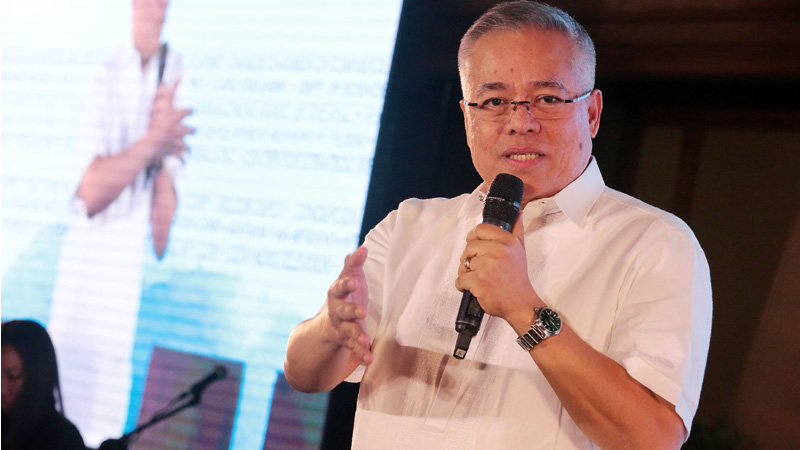
Trade and Industry Secretary Ramon Lopez (File photo by GRIG C. MONTEGRANDE / Philippine Daily Inquirer)
The manufacturing sector would find it a “challenge” to grow beyond 10 percent next year if a significantly higher coal excise tax was imposed, Trade and Industry Secretary Ramon Lopez said.
Lopez told reporters in a recent interview that the Senate proposal to increase the coal excise tax by nearly 3,000 percent higher than its current rate would impact the manufacturing sector, at a time when the sector has been growing in the past years.
READ: Senate approves tax reform bill
The trade chief has previously said that the sector is expected to grow beyond 10 percent next year, following the recovery of its performance in the past years, especially after it reached a 9.4-percent growth in the third quarter, which is its largest quarterly performance in nearly a decade.
The excise tax is part of the recently passed Senate Bill 1592, the upper house’s version of the first tax reform package under the Duterte administration. If passed, it would lead to an increase in the excise tax on coal from P10 per metric ton to P100 per ton in the first year of implementation, P200 per ton on the second year, and P300 per ton on the third year
“When it’s that rapid, it would be challenging. Offhand, we still need to study that. That’s too big an increase. It’s quite surprising,” Lopez said in a mix of English and Filipino.
The trade chief’s comment echoes the concern raised by Senator Sherwin Gatchalian, who said during the recently concluded National Export Congress that the government might “see a slowdown in the manufacturing sector especially since it’s so dependent on electricity.”
Gatchalian, who called the proposal an “unfair imposition,” said he would move to stop Congress from passing the policy. The Philippine Chamber of Commerce and Industry, the country’s largest business organization, has also opposed the call for higher coal excise taxes.
“It would be a challenge obviously. It would be a much higher cost for power,” Lopez added.
Nevertheless, Lopez said that the momentum in the sector is “still there,” especially since its growth would also be dependent on orders in the export market, which has been growing in the past few months, official data show.
This develops as the government wants to lower the country’s trade deficit when the Duterte administration ends its term in 2022. Doing so, he said, would require “structural reform” in order to eventually meet, or at least keep up, with export requirements and domestic demand. /jpv

